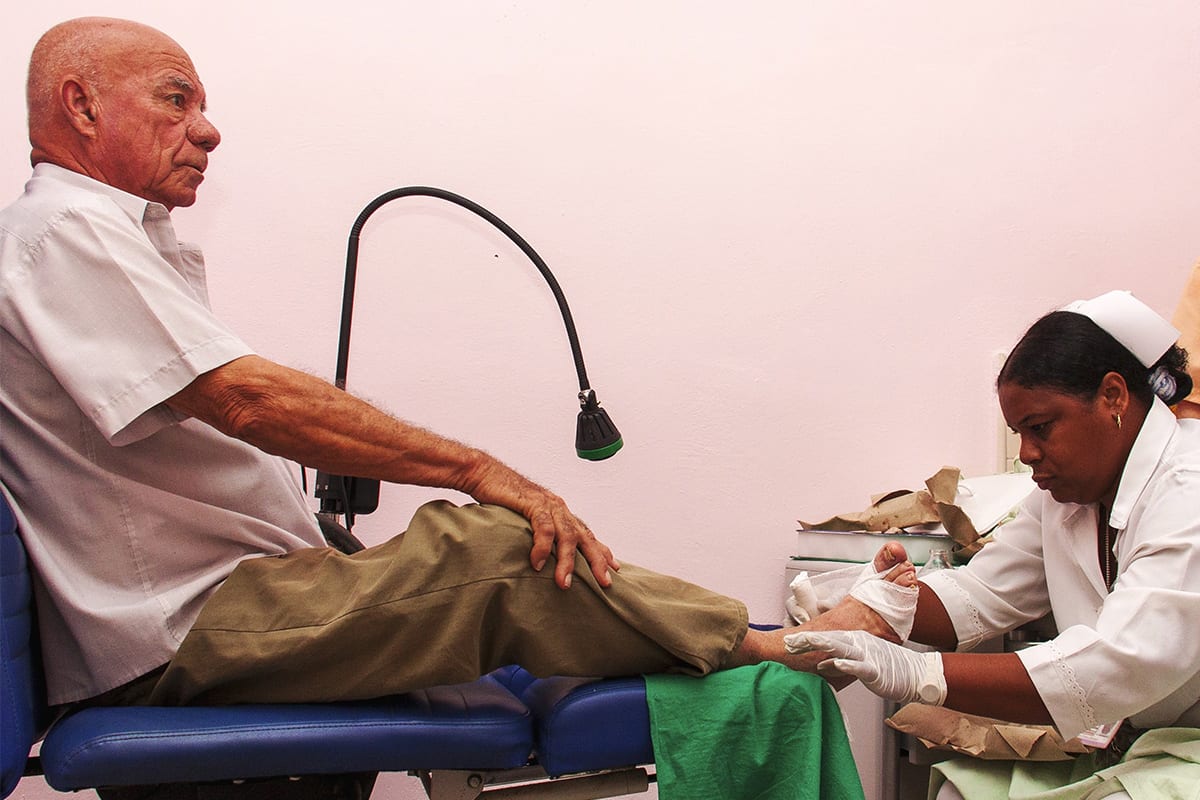Americans May Gain Access to Cuba’s Groundbreaking Medicines
By Alisa O’Brien, November 10, 2016

Did you know that Cuba has developed a novel lung cancer therapy that could be a game-changer in cancer research? Or that Cuba has pioneered a diabetes drug that can prevent foot amputations?
Pretty cool, right?
Before recent regulatory changes from the Obama administration, these potentially life-saving innovations had been off limits to Americans. A six-decade embargo against Cuba largely prevented U.S. and Cuban health cooperation on common health challenges such as cancer and diabetes, but also on Zika and other infectious diseases.
Meanwhile, 23 other countries around the world have been using and benefiting from Cuba’s diabetes treatment for years. The Cuban medication has a 70% effectiveness rate in preventing limb amputations in diabetes patients.
In the case of the lung cancer therapy, studies show that it is proving effective not only in improving patients’ quality of life, but also in prolonging life.
These promising therapies had been stuck in the bureaucratic red tape of embargo politics, rather than being fast-tracked to improve health and save lives in the U.S.
That has all changed with the Obama administration’s recent regulatory changes. Smart and sustained advocacy, sound policy and visionary leadership made it happen. These treatments can now enter the normal regulatory process at the Food and Drug Administration, and, if approved, begin benefiting American patients.
In fact, the preliminary research for the lung cancer therapy is so promising that the FDA has already given approval to Roswell Park Cancer Institute in Buffalo, NY, to begin clinical trials.
The Obama administration’s new directives not only make possible access to life-saving treatments, but greater commercial research and biomedical cooperation as well.
In a recent letter to the editor in the New York Times, Nassim Assefi, Executive Director of MEDICC, explains that President Obama’s actions to ease the embargo are a big deal, as the embargo “has not only hurt ordinary Cubans and prevented trade with American companies, it has also stymied mutual work on critical health problems like Zika, where Cuba has had tremendous success in controlling the spread.”
For more information, check out this Atlantic article that describes the cancer vaccine’s path to the U.S. or read this Congressional letter to the President urging greater health cooperation with Cuba.
